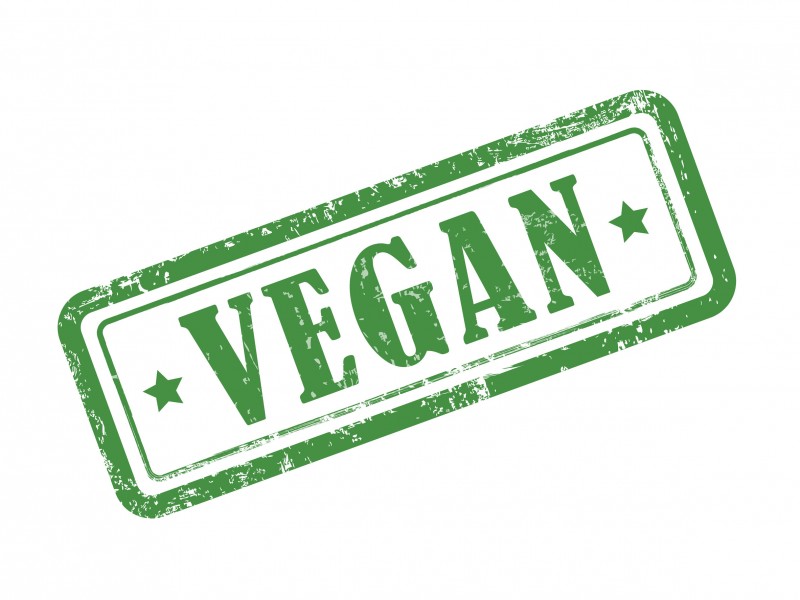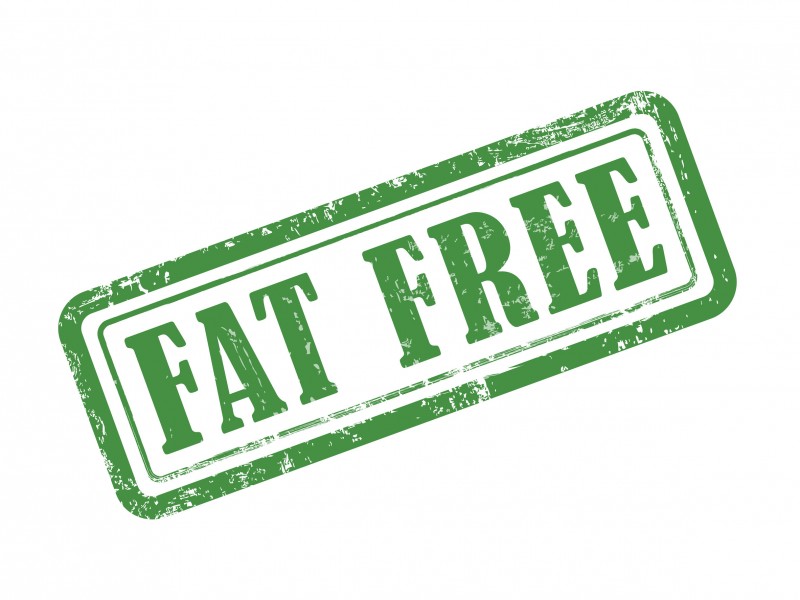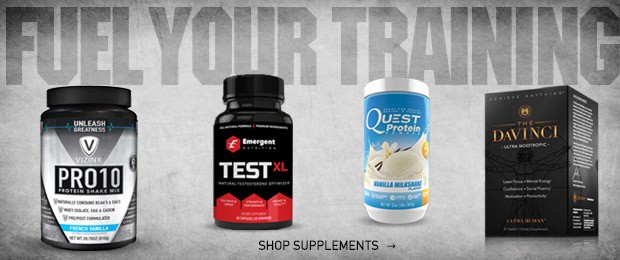
This article idea has been on my brain for a bit. There are just some nutrition methodologies and practices that have an infinite lifespan, regardless of how lacking in science they are. I simply can’t take it anymore. I have to lay it all out there.
However, I wanted to provide you with not only my perspective but the perspective of other nutrition and fitness professionals as well. So when brainstorming this article I reached out to fellow professionals via the interwebs and obtained my list of nutrition myths from not only my brain but from theirs as well. So when you read through this and hate on something, just know I am not the only brain behind this operation that’s sick of the bullshit. Below is a list comprised of nutrition myths that simply need to die a slow and painful death.
My awesome nutrition-myth list contributors:
- Annie Gunshow – NBS Strength Coach, Figure and Physique Competitor
- Austin Stout – Owner of Integrated Muscle and Health/Coach, Bodybuilding Competitor
- Kala Duncan – Owner of OMNI FIT/Coach, Figure Competitor
- Katie Anne Rutherford – Owner of Power Fit Performance/Coach, Pro Figure Competitor
- Adam Atkinson – Owner of SeeYouLaterLeaner/Coach, Bodybuilding Competitor
- Spencer Posey – Owner of Denali Fitness and Nutrition/Coach, Bodybuilding Competitor
- Peter Baker – Training and Nutrition Coach, Powerlifter
- Bryce Calvin – Strength Coach (Obnoxiously jacked and lean year-round; everyone hates him)
1. Eating past 8 PM will make you gain fat.
This thought or mentality drives me nuts, and it runs rampant. I am not sure where it came from, but it definitely did not come from any methodically sound research or science. Here’s the deal: No matter when you start or finish your meals in a given day, your body is going to use calories or store calories as needed, when needed. There is no magic time to stop eating so your body is less likely to store the calories you consume as fat. How and when your body stores fat depends primarily on your “average” caloric intake versus your “average” energy expenditure over the course of time. Note I said “average.” You do not literally gain fat overnight. Fat gain occurs due to folks out-eating their caloric expenditure on average, remaining in a caloric surplus most of the time or most days. That’s how fat gain happens — not because you ate right before bed. In fact, I actually encourage folks to eat right before bed. Why? Because it helps you sleep better, and you’re not waking up in the middle of the night to raid the fridge.
Photo credit: burakowski © 123RF.com
2. Zero calorie sweeteners will make you gain fat.
I am literally going to write this explanation while drinking a Monster Energy Ultra Red. Let’s take everyone back to high school physics class for this one. The First Law of Thermodynamics, also known as the Law of Conservation of Energy, states that energy can neither be created nor destroyed. Simply put, you cannot create energy (or in this case, calories) out of thin air. If a compound does not contain energy (calories), there is no way in the history of the world that compound can create energy. Anything with true zero calorie content cannot physically add fat mass to a human body. It literally can’t happen.
WATCH: Dr. Eric Serrano SPS Presentation — Eating for Size and the Problem with Protein Shakes
Now, that being said, there are a few things that may have the potential to happen. There has been research that links increased cravings for sweet foods with ingesting artificial sweeteners, and there is also a potential for an insulin spike as well (but that also occurs when you eat, well, anything). So, if someone is in a constant state of a caloric surplus and eating junk, adding artificial sweeteners into the mix probably isn’t the best option. Getting said calories under control should be the first option. But, if your nutrition is sound for the most part, and you don’t obviously have an allergy or intolerance, artificial sweeteners are absolutely fine to ingest from a body composition standpoint. Bodybuilders live off this shit and are literally the leanest people on the planet. So stop it. Stop blaming the sugar-free syrup and start blaming the McDouble.
3. You should eat five to six meals a day to keep your metabolism running at its best.
This one tends to be an issue not necessarily because it is “wrong” per se, but because it lacks specificity to the individual. Everyone has a different lifestyle and simply operates differently, so eating five to six meals a day just isn’t feasible or necessary for everyone. Not everyone’s jobs or daily life can account for eating that often throughout the day. Also, splitting your meals up five to six times by default creates much smaller meals over the course of the day. This method may actually make most people feel hungrier throughout the day and less satisfied. If you were to take the same daily calorie and macronutrient breakdown but split it up into maybe four meals, there is the potential to feel fuller longer since the meals are a bit larger by default. Now, I have seen five to six meals work great for people (myself included), but the research is lacking from a metabolism boost perspective. So do what works for you. You don’t have to marry six meals a day to achieve a metabolic benefit.
Photo credit: kchung © 123RF.com
4. Eating healthy will automatically lead to fat loss.
As much as no one wants to believe it, “healthy” food possesses calorie content. At the end of the day, food quality matters for health and body composition, but overall calorie intake is king. It is absolutely possible to over-eat “healthy” foods and gain weight. I actually see this more often with vegetarian or vegan dieters. This is not a knock on those populations at all, actually. But when you take a look at vegetarian or vegan food options, they are very heavy in carbohydrates and fat, with minimal to moderate protein content. In order to consume enough protein daily, by default you will have to consume a lot of everything else. Very little, if any, foods within this realm are highly protein-based with low carbs or fat. So most folks in these populations either under-consume protein completely, or if they do consume enough protein they usually wind up in a caloric surplus by doing so. Catch my drift?
5. When you consume too much protein in your diet, it gets stored as fat.
For the love of all things holy, if I hear one more dietician or academia “nutritionist” say this, I will, in fact, lose my damn mind. Unlike the other macronutrients (carbs, fat, and alcohol, technically) protein or amino acids cannot—I repeat, cannot—be stored in the body as fat for later use. When protein is consumed it is either stored as muscle, stored as liver glycogen, or is excreted. End of story. Can we move on now?
6. You don’t have to count veggies in your daily macros.
This point is definitely hit or miss across the board, and I feel like a handful of nutrition and fitness professionals feel differently about it. But from my perspective, there are two things at play here. First, not all vegetables are created equal. Eating a whole bag of carrots is absolutely not the same as eating a whole bag of shredded iceberg lettuce. Second, vegetables, even if comprised of mostly fiber, still contain calories. I personally think for the average person trying to lose weight or change their body composition in some way, calories from veggies may not be a huge concern. However, if you are looking to get on stage and compete at a high level, it absolutely should be a concern. Everything counts when you are getting down to low teen or single-digit body fat levels. So yes, veggies count.
Photo credit: kchung © 123RF.com
7. You must adhere to a diet that eliminates a food group or macronutrient to lose weight.
Have you ever noticed that most fad fat loss diets exclude an entire food group or macronutrient? Why do you think this is? Because it works. By removing a food group or macronutrient, by default, you will lose weight. It’s not because you removed that specific “thing,” but you simply decreased your total caloric intake. This is not rocket science here, people. However, for many reasons this method of “good” versus “bad” food or elimination is not only unsustainable long-term but can also lead to some health issues and nutrient deficiencies down the road. Manipulating macronutrients in some way to achieve fat loss is, by all means, appropriate, but removing something completely? Not really.
8. As long as you follow if-it-fits-your-macros (IIFYM) you can make progress, regardless of food choices.
Really? You’re telling me I can eat 300 grams of carbs from Pop-Tarts, not feel like complete shit, and get shredded? I wish that were true. Honestly, the thought process behind IIFYM is absolutely brilliant and works for a ton of people. But in recent years it has definitely been abused and taken out of context. Regardless of your macronutrient and calorie allotment for the day, things such as micronutrients, fiber, and overall food quality need to be taken into account. Micronutrients play a huge role in body composition. Fiber plays a huge role in body composition. Sugar intake plays a huge role in body composition. The list goes on. IIFYM is a great tool, but it doesn’t work if it’s abused.
9. The main culprit of fat gain is condiments (ketchup, coffee creamer, etc.).
Again, I am going to ask: really? I am not sure how many years ago this caught on as a trend, but I remember thinking it was so trivial. I definitely think there is validity to calories adding up in condiments and additives for sure, but to claim fat gain is caused primarily by ketchup or coffee creamer? To lay out the numbers here, a tablespoon of ketchup is roughly 20 calories, and a tablespoon of full calorie coffee creamer is 35 calories. So you’re telling me fewer than eight grams of carbs per serving is what is causing me to gain weight? This is a prime example of encouraging folks to pick up the pennies before the dollars. Focus on the main items that need to be addressed first, then worry about the small stuff. Even with bodybuilding competitors, small things like this are the last to go in their plan most of the time. Take care of the real problem with your training or nutrition; don’t attack the negligible.
10. Competing in bodybuilding or achieving low levels of body fat will inevitably lead to metabolic damage.
How many times have you heard someone who competed in one show say they now have metabolic damage from it? If you are in the bodybuilding world, probably weekly. But is it really running as rampant as we think? Truthfully, I don’t think it is. That being said, I have had clients with true diagnosed metabolic issues, but they seemed to have stemmed from a genetic predisposition and not over-dieting or being too lean. That, I have actually never seen. I do believe there are extreme measures to dieting in bodybuilding that I am not a fan of, but I do think the finger gets pointed at metabolic damage way too often. Gaining 15 pounds in a week post-show from eating donuts every day is not metabolic damage; that’s called a normal bodily response to eating donuts every day.
Lastly, I want to give a big shout out to all the folks who contributed their thoughts to this list! I couldn’t have had this much fun writing it without you. I hope everyone found this article truly amusing. Feel free to comment below with a nutrition myth of your own that you think needs to die. Lord knows there are more than ten.














IIFYM, even when abused works as long as calories are considered. The author has confused how someone feels with fat loss or gain.
Lastly, you are less likely to store fat if you consume your calories around activity. If you eat a 2k meal before bed without activity, you are more likely to store that than if you consumed it earlier in the day when there was activity. The problem isn't the time, it is the activity level, and most people are inactive in the evening. The advice in #1 conflicts with the view in #5 on protein too....inconsistent article.
Martini, Ober, Nath, Batholomew, Petti 2nd custom edition
Joe - exactly. Science is a cool thing. :)